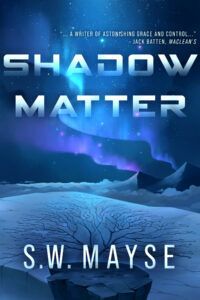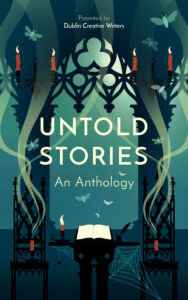Lorina Stephens's Blog
December 19, 2024
And so it’s December
It’s hard to believe another year has zoomed by. Always seems I just get used to recording the new year, and then, whoosh!, time has sped past me while I have had my nose in flowers, my thoughts it stories, and my hands either in dirt or paint.
But, here we go. It’s December. just 18 days until January 1, 2025.
From my brain to the keyboardMy output of new short stories was a bit slower than last year. That’s okay. I’ve never been one of those writers who can scope out markets and write specifically for that. Probably why I haven’t had a brisk financial career in the arts. It’s the thought of churning out story after story saying the same old thing but in a different colour has never appealed to me. I know: sound terribly precious, eh what? But that’s me.
Mostly I’ve been concentrating on writing short stories these past few years. I think that’s for several reasons. First it was COVID and being thrown into palliative elder care, a mother-in-law with dementia and some pretty crazy times around that which have left me with a bit of shell-shock, and so creeping insecurity and some new neuroses which I’ve tackled head-on and refused to give in. Like agoraphobia. Say what?! Me?! Yup. So, screwing up courage, armed with a hat to prevent my head falling of (I shit you not), and a cane for balance, I worked on that over the summer. Of course, joining Gary on our new sailboat Wight Spirit kind of forced the need to address all that silliness.
The second reason I’ve been concentrating on short stories is that it has come to seem such a lot of work to write a novel no one will read. My novel sales these past few years have been almost zero, as in under 10 copies per year, maybe even five. Whereas short stories can be written in a few days, perhaps a few weeks depending on depth of research and time of year, and the likelihood of selling said story is far greater, and at least some people actually read that story. That helps with the writing in the closet syndrome, in that I know there’s someone on the other side of the door picking up those pages and having a silent communication with me.
And the third reason short stories have taken my storytelling creativity is because of an article in Publisher’s Weekly which stated there had been over 2 million books published in 2023, of which only 300k were by traditional publishers. That means all the rest are from indie publishers and authors, with the overwhelming majority of sales in the erotica and romantacy genres. I detest both genres. I will never write in those genres. And so, once again, what I have to say appeals to, oh gee, no one as evidenced by my lack of sales. So, again, short stories seem the sensible artistic form for my need to express thoughts through story.
Short story sales this yearI’m pleased to have the following stories find homes this year:
“A Fine May Evening”, Polar Borealis, Issue 28, January 2024
“A Puppet to His Thoughts”, Hauntings and Hoarfrost, ed. Rhonda Parish, Tyche Books, releasing January 2025
“A Slippery Situation”, The Bad Day Book Volume 2, releasing January 2025
“By Any Other Name”, Once Upon a Future Time, ed. Logan Uber, August 1, 2024
“Cornish Pasties on Wednesday”, Journ-E: The Journal of Imaginative Literature, Vol 3, No. 1, ed. Frank Coffman, March 2024
“Moon Dust”, Journ-E: The Journal of Imaginative Literature, Vol 3, No. 1, ed. Frank Coffman, March 2024
I also sold “Penny Dreadful” to On Spec Magazine, publication date to be announced
Overall, I take that sales record to be quite good, because it means those editors, and those subsequent readers, will have transported for a few moments in a world I shared with them. That’s a very fascinating and rewarding thought to me.
Painting Eugenia Falls
Eugenia FallsI completed a few watercolour paintings this year, the most recent being Eugenia Falls, pictured above.
In the new year I plan to delve back into oils, which is where I started at the age of 14 under the tutelage of Dorothy Milne Eplett.
I think watercolours will always be my preferred medium, because the extreme planning and technicality of the medium fascinates me, forces me to slow down and really think about the image I’m trying to create. Mind you, the reason I’m looking forward to oils again is for the exact same reasons, as I plan to employ more of an old masters sensibility to the work, rather than impressionistic or impasto sensibilities.
Which brings me to my third loveAnd that’s gardening. I never really imagined being a gardener, enjoying the feel of my fingers in dirt, of nurturing something from cutting or seed to healthy botanical organism. But it does give me such remarkable pleasure, whether I’m sewing seeds for the vegetable garden and the myriad flower pots every year, or caring for the houseplants and wee bonsai I’ve coaxed into twisted beauty. And so, come next month, I’ll be ordering seeds, revamping my method of seed trays to something more environmentally sustainable, and little by little all the plant stands will fill with hope. It often feels like Demeter awakening the Earth.
What has become astonishing and apparent to me is that growing things is akin to writing or painting, or I suppose any form of creation and all its aspects.
But for now……I wish you a contented holiday season, filled with laughter, health, and optimism.
October 25, 2024
Goings on
It’s been since June I last posted any updates or information, mostly reviews. May through October are months busy with gardening and harvesting, so there’s little oomph left in the old girl to actually apply myself to writing a blog post and keeping followers apprised of what I’m up to, what I’m writing (or not), what I’m painting (or not). You get the picture.
So, here I am at the end of October, belatedly offering up a bit of an update.
Summer activites
Whew, but it has been a busy summer! What started out with a quote for perennial garden maintenance, turned into a major landscaping project, in which we had River’s Edge in Walkerton tear out the old herb garden, and terrace the area with armour stone. They also set in place the new stone step off the mudroom door. It’s all rather gorgeous, if I do say so, and they did a very professional job of that and the garden maintenance. We since planted up the bed with pink hydrangea which apparently will go quite blue once we amend the soil.


Of course, before any of that started I planted up 16 hanging baskets, and 20 pots of flowers, all of which I grew from seed, and planted the vegetable garden. We calculated that I grew about 150 pots of seedlings. Good gravy!
Then, because you apparently can never have too many sheds, we purchased a dedicated board and batten garden shed, larger than the existing implement sheds (mostly filled with Kubota tractor attachments and such. That led to another construction job which Gary undertook, building a retaining wall and filling the area with 3/4 clear gravel as well as completing the service drive on the east side of the house. All very lovely and functional.
Which, of course, then led to the planting of 10 white spruce trees. Earlier we planted to pawpaws and another flowering crab, and took out the broken cherry tree which had split during a violent wind storm.
Himself also built an armour stone crib for the second greenhouse we purchased in the spring an 8′ x 10′ tinted carbon fibre wonder with a sink and stainless shelves and ohmigod. He’s hoping to have that finished by close of November before winter weather sets in. Honestly, I don’t know how he does all this.
Of course, all of that activity had a dramatic turn, in that after taking a Sail Canada course and getting his skipper’s license, he bought a 28′ Ontario Yacht by name of Wight Spirit, happily ensconced at the Wiarton Marina. Turns out he’s a natural. Also turns out our son is as well, who remembered well his time with the Toronto Brigantine program when he was a youth. On the other hand, it would appear I’m deathly afraid of big water. But not to be daunted, I’ve figured out strategies to conquer not only my agoraphobia, but aquaphobia. Why spend your life in fear when there’s so much wonder to witness?
 On the health front
On the health front

I’ve spent a considerable portion of this year having oral surgery to address neglected teeth. So far have had all my molars removed, had three bone grafts, one post for an implant, a crown, a filling, and more to come. There are another three posts to go in, and crowns for all four, removal of the lower front four teeth, and a bridge made and placed. I’ll be lucky to be done by the end of 2025. Have a very professional, communicative dental surgeon in Hanover. Picture posted for reference regarding this latest surgery, which is now in the aubergine stage.
There have also been some other mental health issues having to do with depression, but I’m dealing with it, quite positively, and refuse to be ruled by darkness and memory of past abuses. I’m acutely aware of the finite nature of the rest of my life, so wand to spend that in contentment, pursing creative and pleasant activities with the love of my life.
The winter?Well, I’d like to finish Hekja’s Lament, maybe start in earnest the sequel to From Mountains of Ice, paint another series of watercolours, and of course come February start cuttings which will graduate to seedlings. I have several short story ideas in the works, and also hope to hammer out some of those and get them off to markets.
Himself has plans to renovate his studio, which written like that sounds like an oh-so-easy project. But remember this is a 150 year old stone house, which means nothing is level. I imagine that will take him all winter.
Other than that, life here at The Old Stone House continues on pleasantly.
June 28, 2024
Review: Grey Dog, by Elliott Gish
 Grey Dog
Grey Dog
Elliott Gish
ISBN 9781770417328
400 pages
Release: April 9, 2024
Publisher: ECW Press
Young, talented, well-acquainted with 18th and 19th century gothic horror and dark fiction, Elliot Gish has launched her debut novel, which is relatively accomplished, and certainly makes for an interesting read.
What is the novel about? The marketing blurb:
The year is 1901, and Ada Byrd ― spinster, schoolmarm, amateur naturalist ― accepts a teaching post in isolated Lowry Bridge, grateful for the chance to re-establish herself where no one knows her secrets. She develops friendships with her neighbors, explores the woods with her students, and begins to see a future in this tiny farming community. Her past ― riddled with grief and shame ― has never seemed so far away.
But then, Ada begins to witness strange and grisly phenomena: a swarm of dying crickets, a self-mutilating rabbit, a malformed faun. She soon believes that something old and beastly ― which she calls Grey Dog ― is behind these visceral offerings, which both beckon and repel her. As her confusion deepens, her grip on what is real, what is delusion, and what is traumatic memory loosens, and Ada takes on the wildness of the woods, behaving erratically and pushing her newfound friends away. In the end, she is left with one question: What is the real horror? The Grey Dog, the uncontainable power of female rage, or Ada herself?
Elliott Gish herself is a writer and librarian from Halifax, Nova Scotia, and that Maritime familiarity with small villages and tight communities certainly informs much of the flavour and ambiance of the fictional world she creates. Lowry Bridge, while set near Portsmouth, England, could be any isolated community on Canada’s East Coast, particularly in the early 20th century. There is a Hardian atmosphere in this world, a brooding presence in the landscape, let alone the people. And like much of Emily Bronte’s Wuthering Heights, there are characters awash in secrets.
Gish has told Ada Byrd’s story through journal entries, not an easy format to maintain throughout an entire novel, but she does so with ease and interest. The depth of character this has allowed her is handled deftly, and while doing so Gish gives homage to some of the great Classical writers: Hardy, the Bronte sisters, even Stoker and Shelley. There is a brooding malevolence which weaves through both environmental and character descriptions, a sense there is something not quite right with some members of the village of Lowry Bridge, and the forest which abuts it. I was minded toward the end of Conrad’s Heart of Darkness and the elusive person of Kurtz, and while Marlow does eventually meet this legendary character, Ada Byrd never does meet the dark force known simply as the Grey Dog. In many ways, the forest, and the Grey Dog, are metaphysical metaphors of Ada’s own mental fragility and fears.
Ada’s descent from educated and dedicated schoolmistress into madness and a bestial state seems inevitable, predetermined by what she has endured at the hands of a brutal and manipulative father, the powerful allure of a wealthy widow, and the social mores of the time. It’s like watching a train wreck in slow motion, or knowing the protagonist standing in front of the basement door is going to open it and walk down into darkness and horror. It’s that ability of a writer to draw upon our most primal fears and lay them down as inevitable.
And yet Gish has refrained from the current affectation of splatter and gore. Watching the horror unfold in Grey Dog is like a dance of the seven veils: provocative, seductive, often subtle. I applaud her for her restraint and craftsmanship.
However, it is important for the reader of this review to know I am mostly ambivalent to this genre, so for Gish to have garnered my interest and nod is quite something. Sure, there are nits I could pick, but they are minor and mostly attributable to my own pet peeves. Given that, I’d have to say any lover of modern gothic horror is going to love Grey Dog. And if this is Gish’s debut novel, I can only imagine with interest what might be coming next.
June 21, 2024
Review: Autokrator, by Emily A. Weedon
 Autokrator
Autokrator
Emily A. Weedon
ISBN 9781770866850
440 pages
Release: April 13, 2024
Publisher: Cormorant Books
Autokrator, the debut novel by Emily A Weedon, brings with it some perceived credibility: Weedon is a Canadian Screen Award winner for best writing in a webseries. She’s also won or been nominated for 10 other screen writing awards. And she’s represented by Sam Hiyate of The Rights Factory. The novel is published by Cormorant Books, a Toronto-based publisher with a reputation for producing accessible, and sometimes award-winning books. All of that sets up an expectation of a scintillating, remarkable novel.
First, the marketing blurb so you’ll have an idea what this novel is about:
Born nameless, in a rigid, autocratic society that has relegated all women to non-person status — Unmales — two women fight against their invisibility.
The disappearance of yet another Domestic means Cera must take on extra duties and tend the rooms of The Cratorling, the young successor to the autocracy. Face-to-face with him, Cera realizes he is her son, taken from her at birth. She vows to make herself known to him, no matter the cost.
Driven by a Machiavellian mind and ego, Tiresius has successfully hidden her Unmale status in plain sight for years. She rose through the ranks of the autocracy to reach the highest levels of government. She revels in the power she has attained, but her ruse makes her a gender criminal, which is an act punishable by death.
Both Cera and Tiresius are determined to achieve their goals, but, for better or worse, their actions begin to dismantle the framework and foundations of the autocracy itself.
Hopeful and cautionary, Autokrator reimagines gender and power in society against the backdrop of an epic, deeply etched, speculative world.
Where do I begin? I’m sitting here at the keyboard a little hesitant to launch into this review. That hesitancy doesn’t arise from an effervescence of praise; rather, it arises from a remarkable sense of incredulity that Autokrator not only made it past an agent’s desk, but a publisher’s, and then the editor assigned to the manuscript. Had this manuscript come across my desk I would have returned it after the first 30 pages, if even that far.
Why? I’m about to get into that.
Weedon attempts to create a world in which women are utterly subjugated. Her shrill, misandristic story utterly fails in its message, and was better, and brilliantly done by Margaret Atwood in The Handmaid’s Tale.
You will often read me bang on about research, credibility, plausibility, world-building, and character development. All of these elements are essential to craft an excellent story, and all of these elements are deficient or absent in Weedon’s debut novel.
Let’s start with the warrens Weedon creates for the Unmales (women, and what a ridiculous term in my view) to inhabit. These warrens, sapped beneath the citadel where the Autokrator — the head of the totalitarian/parliamentary political regime of the story — resides, are carved out of what Weedon repeatedly describes as soft earth, completely unlit.
There are two engineering problems immediately apparent in that creation: soft earth requires some form of shoring to prevent cave-ins. There is none in the novel. And an underground habitation without light is problematic when the women who live there are the grunt labour of the citadel. Trying to carry goods, even by wheelbarrow, through cramped, unlit, unsupported tunnels just doesn’t make any logical sense.
And where are the ventilation shafts? That requirement for ventilation becomes even more apparent when Weedon sets many of her scenes in the underground bakery which seems to operate non-stop, fired by wood, a bakery which supplies the majority of the bread for the above-ground male population.
How are they getting all that wood underground? How are those ovens operating when there is no air to draw or vent? How is all that flour delivered? That latter seems to be handled peripherally in the story by the head of the bakery who daily goes above ground to acquire whatever flour she can find, and brings it back down by wheelbarrow. That’s a lot of flour. And then because baking bread (in the oven, over an open fire, in a Norse-style or clay oven) is something with which I am intimately familiar, I found myself gritting my teeth over the myriad inaccuracies in Weedon’s presentation. I started asking myself: how can they see to measure out ingredients? How are they leavening their bread? How are they keeping smoke from asphyxiating them? And on, and on, because just that one activity in the novel, which plays a key role, is so egregiously wrong that it infects everything else.
The inaccuracies in just those items comes as a surprise given Weedon alleges to have been raised on a back-to-the-land, subsistence farm.
There’s the scene where one of the characters is cleaning ash from a fireplace in high-ranking individual’s hearth, accessed by a leather-curtained hatch in the warrens. My first thought was: leather curtain at the back of a fireplace? How does that not burn? And then the character accidentally spills ash out into the main room. Weedon describes it as soot. The character enters the room through a servant’s leather curtain (I really don’t understand Weedon’s fascination with leather coverings) in order to clean up the mess, and then describes wiping up the soot with a cloth so that no one knows of the accident. Now, if it’s soot that’s being cleaned, it won’t just wipe away. Soot is greasy. It’s used in making pigment for inks and dyes, as well as paint. Ash, however, is grey, powdery, and can indeed be removed with a brush or damp cloth.
Then let’s discuss the ‘shawls’ the Unmales wear to cover their faces. In the use of these shawls it would appear they’re worn not unlike a burqa. A shawl, however, is a triangular or rectangular piece of cloth, and were one to wear it to cover the entire face, you’d have to fasten or tie it to prevent it from slipping off, and the weave would have to be relatively thin in order to allow for visibility. That is unlike a burqa which is designed to fit around the head, and which has a mesh screen, or eye-slit, built into the garment to allow the wearer to be able to see where they’re going. So, the use of a shawl just doesn’t make sense. And Weedon seems to have an abundance of spare shawls hung at every access door of the warrens, which is remarkable in itself given these women live in utter indigence.
How do these women bathe? There is no mention of running water, or water being brought down to the warrens. If the women don’t bathe, there must be a proliferation of every kind of skin disease, lice and other infestations. How are they handling their monthly cycles without the means to clean themselves?
How do they clothe themselves? There’s no mention of textile or garment manufacture for women in the warrens, and given this misogynistic society Weedon has created, it would be impossible for a woman to purchase fabric or ready-made garments above ground.
The women sleep in niches carved out with their hands from the dirt. If that’s so, then what prevents those niches from collapsing, especially in light of the fact the niches are stacked one atop the other.
And these are just the most egregious of the material culture problems in the novel. There are more. The novel is rife with them.
Let us move on to character development. There is none. What is presented are flat outlines of individuals, not unlike what one might encounter in a screenplay. I thought this before I ever knew Weedon is primarily a screenplay writer. Once I had that information, the lack of character development made sense. That writing skill isn’t in her lexicon.
And once you are aware of that, it then makes sense that the environmental details she creates, or rather doesn’t create, also fall into place. There is no weather. There is no sense of hot or cold, sun or cloud, when the women venture out from the warrens. It’s rather green screen.
What there is a great deal of description about is the gender modification one female character undergoes in order to pass herself off as Male, and thereby rise through the political ranks.
Which brings me to the improbability of that particular character becoming the doppelganger of a young man who dies in an equestrian accident. She utterly assumes his role, even to the point of travelling home to meet with her father who is a man of standing. Quite miraculously she’s accepted. Which, for me, just reinforced the incredulity of the story.
Then there’s the role of the Consort, a male heir, who is required to dress in ‘women’s weeds’, so, essentially, to spend his life-in-waiting as a transgender individual. But that raises the question: if this is a male-dominated society which is utterly misogynistic, a society in which Unmales are loathed, then why is the male heir dressed as a woman? Again, it just doesn’t make any logical sense.
By the end of the story, this phallic-obsessed society masturbates its way into an ideological civil war. Even the women get involved. The conservative male faction who want to exist and procreate without any females, in fact wish to eradicate all Unmales, set about killing women and the men who do not support their radical views. The liberal males kill the conservative males. The women kill everyone. There’s a lot of killing. It’s almost like Titus Andronicus. And then they stop. A liberal male takes the role of Autokrator, an individual who has been fed a slow poison most of his life, and then names as his heir and consort the Unmale he has secretly loved for years. He dies. The Unmale takes power. Her tenure is even shorter. And what happens after that, is, well, not really quite known.
And I was left not really quite caring. Just glad it was over.
Should you read Autokrator? Probably, if you like misandristic, shrill, and not particularly well-written novels. Art is subjective.
June 14, 2024
Review: Him, by Geoff Ryman

Him
Geoff Ryman
ISBN 9781915202673
376 pages
Release: December 5, 2023
Publisher: Angry Robot
I must admit I became enamoured of Geoff Ryman’s work after reading The King’s Last Song, a superb tale which relates the story of an archaeologist working on the stupendous site of Angkor Wat where he finds a book of golden leaves which is a memoir written by Jayavarman Seven, one of the first Buddhist kings in Cambodia. The second story reveals the contents of the memoir as its being written. The third story revolves around a former Khmer Rouge policeman. The intersection of these stories haunts me still, years after having read it.
Since then, I’ve read just about everything Ryman has written, and have always been deeply affected.
Ryman’s latest novel, Him, surpasses anything he has written thus far. In my opinion, the skill and scope of the novel firmly places him in the same league as Rushdie and Atwood. And like those luminaries’ works, Him is destined to not only become a classic in literature which transcends genre, but join that cannon of books which are banned and burned.
Him is a reimagining of the mythology of Jesus, and what Ryman creates is believable, sensitive, devastating. As always, his writing is precise, his characters clearly defined, his pacing and plot fraught with tension.
Ryman’s exploration reveals a pregnant woman married off to a man who is essentially the village idiot. She cannot account for her pregnancy, thus the virgin birth. He has been exiled for preaching questionable views of the Torah. The marriage is difficult in that neither wishes any sexual congress, and yet they do somehow manage children. The eldest child, born female and named Avigayil, becomes a transgender individual, and after serving an apprenticeship as a stonemason, goes on walk-about preaching a new interpretation of the Hebrew texts. As expected, their following grows. The essential points of the Jesus story are followed.
But what Ryman does with the characters and events is startling, provoking, and utterly memorable. Maryam’s shock, fear, and disgust of her daughter’s actions is made abundantly clear, to the point she refers to her daughter, now identifying as male and Yeshu, as It, or the Cub.
Yosef barLevi, the hapless husband and father, stumbles his way through existence, incapable of providing for his family, of demonstrating any act of connection.
And Avigayil-become-Yeshu, rockets through phases of recklessness, demand, and grief, until embracing their course of action as a teacher, a prophet, and in the end a god.
Ryman examines profound discovery and self-realization, ripping away any sentimentality and doctrine, and in the end exposes the core of what it means to be human, and to love.
I will not reveal the last passage of Him. Suffice it to say I read it at 3:00 a.m., weeping because of the beauty of what Ryman had written, and the emotional impact of what he had to say.
If Him doesn’t make the shortlist for the Booker, the Giller, and the GG, there is something truly wrong with our understanding of stunning literature. And you should go out right now, obtain a copy, read it, weep, and then give Him a permanent place in your library.
June 11, 2024
Hauntings and Hoarfrost update

So very pleased to be part of this amazing anthology of freezing horror. Featured authors are:
Beth CatoRenee CronleyEC DorganCharlotte E. EnglishChadwick GintherBeth GoderJ.D. HarlockSam HicksCatlyn LaddKonn LaveryAdria LaycraftBryan MillerBrent NicholsVarian RossAlex T. SingerLorina StephensJacob StrunkJ.M. TurnerLaura VAnarendonk BaughSarah Van GoethenKevin WeirNicole M. WolvertonThe anthologyWild storms, the sound of ice skates cutting across an empty pond, and blankets of soft, white, beautiful death.
In the dark depths of winter, it is frighteningly simple to become isolated as snow obscures landmarks, and drifts create claustrophobic conditions that leave you huddled in your house, struggling to keep warm . . . and, perhaps, to ignore the message scrawled in the frost on the window.
Within these pages, you’ll discover eerie tales of long ago ghosts stretching frost-bitten fingers into the present, unexplained footprints in the snow, screaming madness, and icy cold sanity.
Tyche Books and editor Rhonda Parrish present Hauntings and Hoarfrost, an anthology brimming with chilling stories and poems of the mysterious and uncanny for all lovers of horror, fantasy, and gothic.
Kickstarter CampaignHauntings and Hoarfrost has 22 short stories and poems. The Kickstarter edition, in both print and ebook formats, will be digitally signed by several authors and the editor, Rhonda Parrish.
We do have ideas for how to make this edition even more special, so please read the Stretch Goals section to see what we have planned!
While there will be a retail edition of Hauntings & Hoarfrost, the digital signatures will be special for our backers. If we have overstock from the Kickstarter fulfillment process, those copies may be sold at in-person conventions, but never online.
The Kickstarter campaign for this exciting anthology, with lots of details and fascinating tiers, can be found here:https://www.kickstarter.com/projects/tychebooks/hauntings-and-hoarfrost?ref=bhglx8
May 17, 2024
Interview with Maria Campos, voice-over artist
I recently exchanged emails with Maria Campos, the talented voice-over artist I commissioned to narrate my magic realism novel, The Rose Guardian. She did such a remarkable job, I thought it would be interesting to introduce her to my community of readers and followers, as well as offer some insight into the world of voice acting.
[image error]Maria CamposLorina: This may be a commonly asked and obvious question, but whatever motivated you to get into voice acting?
Maria: Besides my general love for animation and gaming, I’ve often been told growing up that I had a unique voice. The combo of that plus the realization that providing voices for media I like was an actual job inspired me to pursue it!
Lorina: Were there courses you took, and if so, what was involved in that process?
Maria: I would say my earliest pursuits of voice-over started in college as I became more immersed in the theater scene of my college and its respective city. In the last couple years of my undergrad, I reached out to voice actors (either via email or at conventions) to ask what advice they had regarding the pursuit of voice-over. A couple echoed the suggestion to take improv classes. So, for a few years I took courses and even performed at the theaters I studied at! I’ve also taken a couple of voice-over courses at local recording studios — one focused on advertisements (as that studio specialized in commercials) and one focused on dubbing (as that studio focused on anime localization). A classmate at the latter studio recommended an online school catering to voice-over artists, and since Covid my training has been almost exclusively online. I continue to take the occasional course or workshop throughout the year.
Most courses/workshops involve script reads in which the teacher takes turns having a student read a script. The teacher then gives feedback and redirection, and the student goes at it again. Occasionally, students provide feedback and redirection to one another. Depending on the course, there’s also been a lecture element where the teacher provides industry insight or vocal exercises.
Lorina: What sort of voiceover work do you do?
Maria: As a freelance voice-over artist, I’ve dabbled in a variety of projects. Besides the odd commission for an indie game or private project, most of my work has been in audio dramas and audiobooks. Of those audiobooks, most are under the romance genre. Given the more explicit nature of many of those works, I narrate romance titles under a different alias. Audible is neat that way, in that when you record an audiobook you can tell the site to which alias to credit the audiobook.
Lorina: When approached to undertake a contract, what criteria do you use in assessing whether it’s a project with which you want to be involved? Is it a purely financial consideration? Or is there some weight given to the artistic quality of a piece? Or is it purely for the fun of the subject and the experience?
Maria: It’s a bit of a mixed bag. Over time, I’ve learned to be wary of auditions that list the title as both Royalty Share and paid. I find when I audition for those titles and specify I would prefer a paid contract, the author will then claim that they can’t afford to pay the narrator. In essence, this is a ploy for authors to get more auditions, then shop for the cheapest voice. It looks bad, and wastes voice talent’s time when they believe the listing to be true when it says it will pay.
While I generally focus on auditions that are listed as strictly paid, I consider Royalty Share titles if:
the premise interests me andthe length of the title is on the shorter side, as I feel my time is justified. Royalty Shares are always a gamble — you never know how well the title will sell. But if the premise interests me and I have fun with it, I see it as worth the gamble and a good way to keep my instrument trained, so to speak.Lorina: How do you decide the character and timbre of your voice when narrating an individual in a work of fiction?
Maria: In being asked this, I realize it’s a bit subconscious… but I tend to have a few stock characters in my pocket that I pull upon based on the age and energy of the character. For example, I have a few voices that I generally give younger characters and other voices I use for older ones. If the text specifies the type of voice, that helps influence the direction to go. I tend to try and give the main character a voice similar to my own, though, as it’s the voice I’ll be using the most and narrating with!
Lorina: Tell me about the process of mastering an audiobook after you have the raw files complete.
Maria: Mastering an audiobook is a lot longer than most people think, as I discovered myself. A single finished hour of an audiobook takes several hours to produce. Besides setting up your booth and equipment to record, it entails:
The initial recordingListening back and editing that initial recordingGoing back to fix errors, or correct reads that felt offGoing back again to relisten and edit the audio fileSometimes — though rarely — sounds or effects may be addedThen comes rendering the audio file so that the audio is a consistent volume throughout (ensuring quiet parts aren’t too quiet, and louder parts don’t blast the speakers). Thankfully, the site Audible narrators use to upload our files has a tool to help keep things consistent. The tool tells us if audio files have an appropriate balance vs if they need volume adjustment.Lorina: Do you ever get frustrated with a piece you’re narrating? And if so, what causes that, and how do you work around that?
Maria: In narrating romance novels, there have been a few times I’ve admittedly been a bit irritated when the audition script failed to suggest how explicit the text would get. Or — whether romance or other genres — there are also times the audition script failed to communicate how dark and difficult the subject matter would be. Sometimes authors give a heads-up, but not always.
Frankly, if I ever feel the need to, I find venting to friends is enough to help me keep going. And more often than not the scenes in question are brief and done with soon enough.
Lorina: Is voice acting your primary source of income, or is this a supplement to what you do to keep house and board? If it’s the latter, how do you manage to fit in the hours it takes to produce a piece?
Maria: I wish it were! I hope someday I can sustain myself off voice-over alone. But I think I have a long way to go until then. For now, it’s a supplement. Though each year I slowly but steadily find more work.
Some days, I will record or edit after getting home from my day job. There are also some days of the week I don’t work my day job, so those days are nice in that I can focus on my voice-over work.
Lorina: Setting up a production studio can be tricky. How did you go about setting up yours?
Maria: In the early days, I had a USB mic and recorded somewhere in my home that had the least echo. It was before I booked any work, but it was a time to practice the trade, take classes, etc.
Over time, I slowly but steadily built my current studio setup: Upon having the money to do so, I made a few separate orders for acoustic foam to line my recording space with. Today it looks well-lined. But it took a good couple years to reach that point!
After taking a couple classes and workshops with my USB mic, a teacher recommended the current mic I now use – an MXL 990 Condenser Microphone. When I bought the mic, I also got the audio interface I needed for it.
So, in a nutshell, it was the accumulation of a couple years’ effort, plus the advice of trusted peers and teachers.
Lorina: And lastly, the required question: what advice would you give to anyone thinking of getting into voice acting?
Maria: The advice I often got when I asked others and that I’ll echo:
You need to be able to handle rejection. So much of voice acting feels like you’re throwing audition after audition at a wall until one of them sticks. And it takes a LOT of throws until one sticks. Even still, I’ve been cast for projects that end up never happening, which can be disheartening.
Also: With the ease nowadays to record from home, I’ve the feeling there are plenty of folks out there who get their feet wet in voice acting, realize how grueling it can be, and don’t stick it out for long. Some folks will simply throw in the towel. For others, it ends up being a hobby and can still be lots of fun! But regardless, many starting off may not know what they’re getting themselves in to. I’d recommend to anyone entering the field not to invest too much all at once. As I noted earlier, it took me years for my current recording booth to become what it is today. Don’t trick yourself into thinking you just need expensive equipment to make it. You need the right degree of professionalism and talent (and of course, luck) to ‘make it’. You can have the best mic in the world and even be a decent actor, but if you don’t have a decent recording environment, it doesn’t matter how much money you spent if a project can’t use your recordings.
And in my opinion, it stands out when you have training — whether it’s specifically voice-over training or just general theater training. You don’t have to be born an actor, acting is a skill for which you can train. And if this is something you want to pursue seriously (whether as a job or just a hobby about which you’re passionate), training can go a long way.
And lastly, don’t undersell yourself. It pains me to see how many freelance voice-over artists undersell themselves, and in doing so it leads to deflation in regards to pay in the industry. It tells clients that the craft is worth less than it is, and it hurts not just you but other voice artists as well. By all means if there’s a fan project out there you’re willing to volunteer for, go for it and have fun! But if you’re going to charge people, don’t undersell yourself and the rest of the VO community. I recommend the following sites to determine what to charge for freelance work:
https://globalvoiceacademy.com/gvaa-rate-guide-2/
Where to find Maria CamposYou can find Maria Campos through ACX, X, Voices.com, Casting Call Club, Voice 123, and LinkedIn.
Where to find The Rose GuardianThe Rose Guardian is available in English in trade paperback, ebook, and audiobook directly through this website, as well as your favourite online seller worldwide. You can also special order The Rose Guardian from your favourite bricks and mortar stores, or online bookseller or library system.
May 5, 2024
Review: Shadow Matter, by S.W. Mayse

Shadow Matter
S.W. Mayse
ISBN 9781989407554
508 pages
Release: November 7, 2023
Publisher: Tyche Books
S.W. Mayse comes with a pedigree, having received the Edna Staebler Award for Creative Non-Fiction, and the Arthur Ellis Award for Best True Crime for Ginger, as well as another Ellis award for first novel first runner-up for Merlin’s Web. She was also shortlisted for the Georgette Heyer Award for Historical Fiction for her novel, Awen.
Her most recent novel, Shadow Matter, was recently released by Tyche Books.
First, the marketing blurb so you’ll have an idea what this novel is about:
A future recasting of the Orpheus and Eurydike myth that weaves together love, loyalty, and the restorative power of art.
The war is lost. Seren Qasri is on her way home, her memories of the final days of the war a disturbing blur. Her occupied homeworld of Claer is in ruins, her mother is missing, and her lost love Teak Kuhan survives only as an avatar. All Seren knows for certain is that she must report in with her data—information that could force a renegotiation of the peace treaty and free her homeworld.
But Seren’s commanding officers aren’t the only ones who want that data or knowledge of the events buried in her memory. Pursued by ruthless killers, Seren doesn’t know who she can trust.
As her memories of a diplomatic courier’s murder return in fragments, Seren strikes a truce with Tas Damou, the freelance who once betrayed her. They detest each other, but only Damou can help Seren stay alive long enough to carry out her task … and prevent another war from engulfing human space.
I was intrigued by the notion Mayse’s novel is a reimagining of the Orpheus and Eurydike myth. This is one of the most tragic of the Greek legends, a story of Orpheus’ journey to the underworld to return his lost love to the land of the living. The song Orpheus plays for Hades and Persephone so moves them that Hades grants Orpheus’ petition, upon one condition: that he never turn his head to see if Eurydike follows him until they leave Hades’ realm. At the entrance, wracked with fear she is not behind him, Orpheus turns, and in that moment Eurydike fades back into the realm of the dead. Orpheus spends the remainder of his days lamenting in both song and soul.
This theme has been oft revisited throughout the centuries in various stories. That’s what storytellers do: we draw upon resonate common themes, adding our own flavour and perspective, and hopefully also new insight.
And so given the long history of this tragic tale, I was intrigued by the notion Mayse might create a fascinating twist set in a future, space-travelling story.
However, right from the onset it became clear I would have difficulty tracking the plot of this story, hit as I was with a barrage of information. Mayse creates a world which spans solar systems, peopled by not only humanoid factions embroiled in political and military conflict, but by genetically and cosmetically altered beings. Want a change? Instead of just tattooing your body, or changing your hair colour, why not completely modify your skin? Why not feathers? Or scales? Or iridescent, even colour shifting tattoos? Add a few neural or dermal implants to heighten your senses, or connect you to an intergalactic information system, and you’re good to go. Want a memory alteration? Sure, why not?
Plant yourself a grove of semi-sentient trees that coo confessions of love as you pass. Create yourself a slave guardian chimera: a ferret, a human/animal beast, whatever you can imagine.
And with all this technology and body alteration, cling to the use of a seemingly outdated tablet, except this tablet doesn’t have data chips, it has data beads, colour coded in pretty precious metals.
Travel between planetary systems can be achieved through a mirror drive. Just what a mirror drive is remains unexplained. But be careful, because you may land in the middle of the aforementioned political and military embroglio, the nature of which isn’t ever made abundantly clear, just that it seems to be the usual territorial power claims with the usual wanton collateral damage.
There are too many place names, too many characters, so that every individual from a barrista to a mercenary is given a name, which then becomes a subliminal signal to the reader to pay attention to that individual because they’re important enough to have been given identity. Same with place names. After the first twenty or so you just sort of tune out, turn off, give up. Are we on the same planet? Have we jumped aboard some shiny, sexy space craft and mirrored our way toward another world? Did we remember to wear that lovely silver, silk scarf?
The erstwhile Eurydike character in the form of Seren Qasri, is supposed to be a gorgeous, sylph-like journalist who creates thoughtful, investigative videos and randomly uploads them to broadcasting media. She mourns the death of her lover, who inhabits her life as an avatar in her tablet. She is also being allegedly hunted by Tas Damou, and this person’s identity, although Mayse attempts to create some mystery and drama around him, very quickly became apparent to me. In the interest of preventing spoilers, I won’t reveal who he is, but anyone with any ability to solve mysteries can easily solve this one.
The writing itself wasn’t particularly engaging. Often Mayse wandered off in new-age exposition, losing the reader in completely irrelevant descriptions of this ersatz world she’d created. The character development wasn’t riveting. I found Seren to be a spoiled, privileged, entitled waif. Damou is the dark, flawed stranger. Everyone else is pretty much a gangster, thug, amoral, predictable, narcissistic individual. It became tiresome.
As to the planet-spanning conflict, that was never fully developed, nor woven deftly enough into the plot to have any kind of imperative or driving force. It just hung there like mist, obscuring any real storytelling.
But let’s return to the alleged reimagining of the Orpheus and Eurydike myth. The only parallel I could find is one which Mayse herself inserts into the final scene, in which Damou and Seren make the comparison themselves. There is no underworld. There is no negotiating her release from death, not even in a metaphorical sense in Mayse’s plot device of reclaiming Seren’s erased memories. And spoiler alert: Seren doesn’t die again in the end. In fact, it would seem the Seren and Damou are about to go off and live happily ever after in some unknown backwater part of the galaxy. How that ties into the Orpheus and Eurydike myth is quite beyond me.
So, overall, I’d have to say Shadow Matter is pretty much a fail for me. Cut the novel in half, eliminate the exposition, tighten the plot, redefine the homage to Orpheus and Eurydike, or give up on that entirely, and craft truly engaging, real characters we can care about.
Shadow Matter will likely appeal to those who are looking for a space-opera romance with a bit of whimsy thrown in, light reading if you can let the barrage of place and character names become white noise.
April 15, 2024
Untold Stories wins First Place
The BookFest is an online community connecting reading, writing and publishing communities with online events, panels, chats, virtual booths and more. Every quarter they award accolades in various genres from small press and independent books. This spring, Untold Stories won first place for Best Fiction Anthology.

Why this is relevant to me is my alternate history story, “For a Cup of Tea” is part of that great collection of fantastika.
Untold Stories is available in trade paperback and ebook through Amazon.

March 22, 2024
Supporting Canadian publishers
I am pleased to be an editor and reviewer at OnSpec Magazine, a quarterly journal of Fantastika fiction, featuring Canadian and International authors. The journal consistently wins genre literary awards, pays professional rates, and generally is a high-quality publication.
Like many publications, periodically cash flow becomes difficult, not through mismanagement, but because of rising costs of production and distribution. It’s always a struggle. Yet despite that, OnSpec continues to hold to very high standards.
At the moment, the publication is facing another cash crunch, and is seeking support. I think it’s a worthy enterprise worthy of your support.
Please visit https://onspec.ca/donations/ and read our call to action, because times are tight, and every little bit of help will go further to sustain us.
Even if you aren’t in a position to donate or buy a subscription now, we bet that you know at least one friend who shares your love of SF&F, and who would like to become one of our readers. Tell them. Please. And thank-you for your support!




